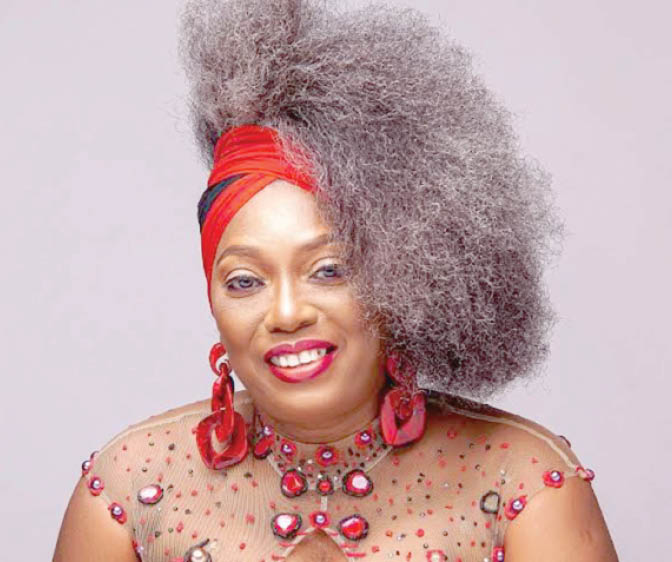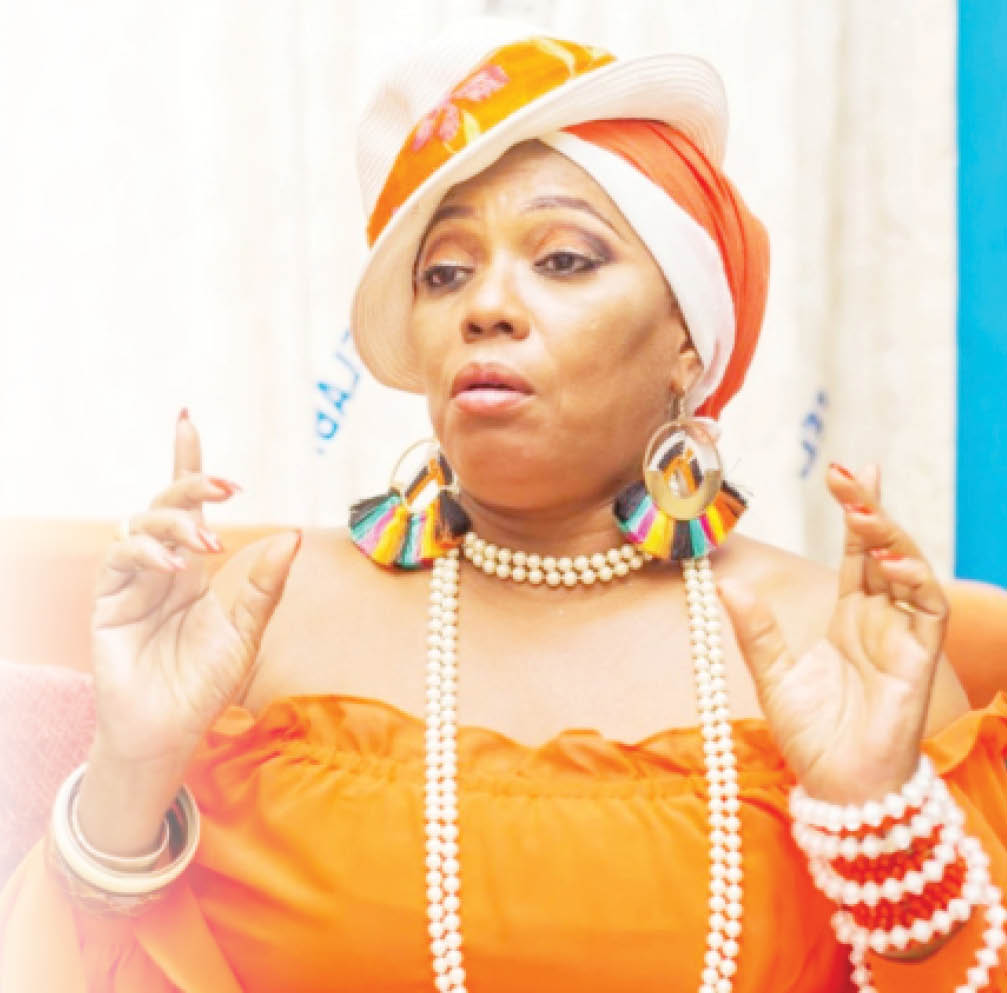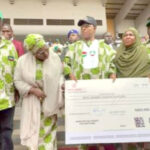Yeni Kuti, 63-year-old journalist, prolific dancer, singer and the first daughter of the late afrobeat legend, Fela Anikulapo-Kuti, in this interview talks about her late mother, entertainment career, how being Fela’s daughter once affected her love life, and many more.
How would you rate this year’s Felabration – an annual event that celebrates the life and legacy of your father, Fela Anikulapo-Kuti?
That is not for me to answer; it is up to those who attended the event. However, I am glad that we had new sponsors, so that was good for us. When they were pitching, they stated that they had heard about the festival and they were on board. That was good but if you ask us to rate it, I cannot rate it because that was our festival. We leave it to you, for us to know whether to step up our game or reduce it but I pray we do not have a reason to reduce our game but rather to step it up.
You are one of the brain behind that festival…
I am the brain.
How have you been able to sustain it all these years?
I have many supporters who have assisted me in materialising the dream.
- Navy deploys 4,000 personnel, 13 ships, 88 boats for sea inspection
- Mufti Menk storms Aso Rock, says Nigeria can be best nation in Africa
How did the conception of the festival come to you?
The conception came shortly after my father died. I thought to myself he died two years before his 60th birthday and we had planned a celebration. In Nigeria, we like to celebrate death. I don’t know about other parts of the world. For some, when the person dies, it is a sad day but for me, I want to celebrate life.
Fela was a person who celebrated journalists because he would speak to everybody. He would serve drinks and food for everybody. So, after his demise, I felt that we should celebrate the legacy, as the legend. That is how Felabration came about and we did the first one in 1998. This year, the festival fell on a Sunday exactly 15 years after the first ever Felabration.
Not many people know that you are a journalist who attended the Nigerian Institute of Journalism. Of all professions why did you choose journalism?
I have always wanted to be a journalist because I like information and news. I was a very curious person so, I think if I had practised journalism, I would have practised investigative journalism. I like to find out the truth.

Would you say that you got that trait from your grandmother, Funmilayo Ransome-Kuti, or your father, Fela?
I would not know. Maybe, even my mother because she was very knowledgeable as she used to read books. She was very curious and gave Fela a lot of information. I also got it from my father who also liked to investigate and that is how he got to know how Africans were meant to be on top of the world. My grandmother too fought for her independence. I could have gotten it from anywhere. I really don’t know.
Many people know about your father but less about your mother. Tell us more about your mum…
My mother was British by birth but Nigerian by parentage. Her father was a Nigerian. She was British because she was born in England but her father was from the famous Taylor family; Alexander Taylor. He was a lawyer. Her father’s brother was John Idowu Conrad Taylor – a Nigerian jurist, Judge of the Supreme Court of Nigeria, and the first Chief Justice of Lagos State.
Fashola named one of the courts in Lagos after him. That was her uncle. She came from a prominent Nigerian family. Her mum was ill when she was about 12 years old so she was taken back to England and went to school there where she met Fela. At the time, Fela was a student. They fell in love and she came back to Nigeria and she never looked back. She loved my father a lot and I felt she loved him a bit too much. So, she forgave him over anything but that was her way and later, life for her was for her and her children.
She wrote a book shortly before she died and I have given the book to a publisher.
Most people don’t know that you used to sing and dance. What happened to the singing career as most of your brothers are known for their singing prowess?
I did not quit singing. I was a backup singer for my brother. My passion was not singing but dancing. There’s this thing about Black people creating division among themselves. If there is a group of Black people doing something positive, someone would come and say, ‘You have talent, do your own.’
What would now happen is that they would break up that positive thing that you are using to succeed because everybody wants to be famous. But if it can’t work, you support the one thing that makes everything work.
What happened was that my sister and I were to do the dancing and choreography for Femi’s band while he handled the singing aspect. I remember then, people would tell me, ‘Do your own. Why do you want to be under your brother?” I am sure that if I had listened to them, we would have broken up but today, the Positive Force band is a force to be reckoned with anywhere in the world. Anywhere they go in the world people love them and that was our baby.
Now, a lot of bands do choreography and when I see their setup, it is not as good as ours. That is what we gave to the world; whether the people recognise it or not. Not that I would say, ‘I also want to sing and then everybody will fail.’ Ours was to support our brother which we did.
When we were younger, we used to fight a lot. We really quarrelled along with my late sister then, and my mother would report us to our father. One day, Fela called the three of us, sat us down and said, ‘I think you are all mad’.
He picked some matches and built something with it. Then he removed one and everything came crumbling down. He said that was how we would be if we did not stick together. That stuck in my mind. Sometimes, we might fight but when an outsider comes for us, we forget our fight and stick together. We have that unity; together we stand, divided we fall. It never occurred to me to go on my own and do my thing. As for my late sister, what was on her mind was that let’s do the choreography and make this band strong.
Our first show was on December 13, 1987. How many bands are still thriving over three decades? I am glad that we did the work. That’s why I said we are still a force to be reckoned with.
Now, people celebrate Fela. But in the early days, as his first daughter, what was it like to be his child?
In my secondary school, in those days Fela was quite famous, so a lot of people wanted to be my friend. I had a lot of school daughters because of my father’s fame.
As we grew older and came out of secondary school, there were some people who did not want to know us. Femi had a girlfriend and immediately they knew he was Fela’s son; they broke up the relationship. A girl warned my cousin never to introduce her to such type of people.
People did not want to know us because at the time he was in and out of jail. However, I can say that being Fela’s child then and now are two totally different things. Then it was not really a good thing to be Fela’s child which I did not care about but now it is a good thing. We have been through a phase.
How was it for you particularly as a lady? Did being Fela’s daughter affect your love life or relationship at any point?
I am 63 years old. That was a very long time ago. I remember one guy that I really liked. I mean, I really liked him but his mother walked me out of their house. The woman was yelling, ‘Don’t come near my son again. You want to destroy my son’s life.’ So, yes, I guess it did. You know mothers can be troublesome people, sometimes.
You recently got an award from South Korea. What is it about?
I bagged the certificate of World Master in South Korea. Basically, the World Masters Committee recognised me as the initiator of the annual music festival, Felabration, and as a World Dance Master.
They use it to celebrate people they believe have done well in their careers. I was recommended by the Nigerian embassy in South Korea. I did not think I was going to get it but I was very happy that they recognised me.

 Join Daily Trust WhatsApp Community For Quick Access To News and Happenings Around You.
Join Daily Trust WhatsApp Community For Quick Access To News and Happenings Around You.


